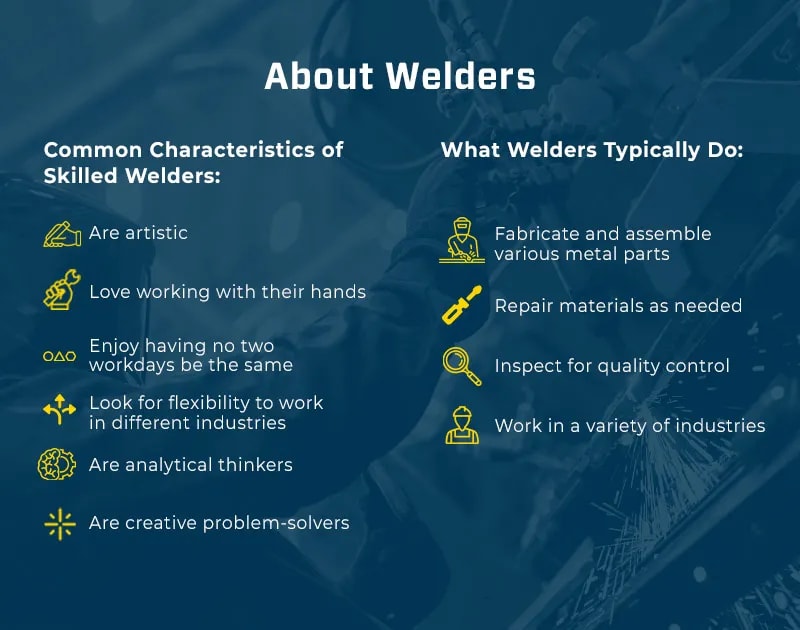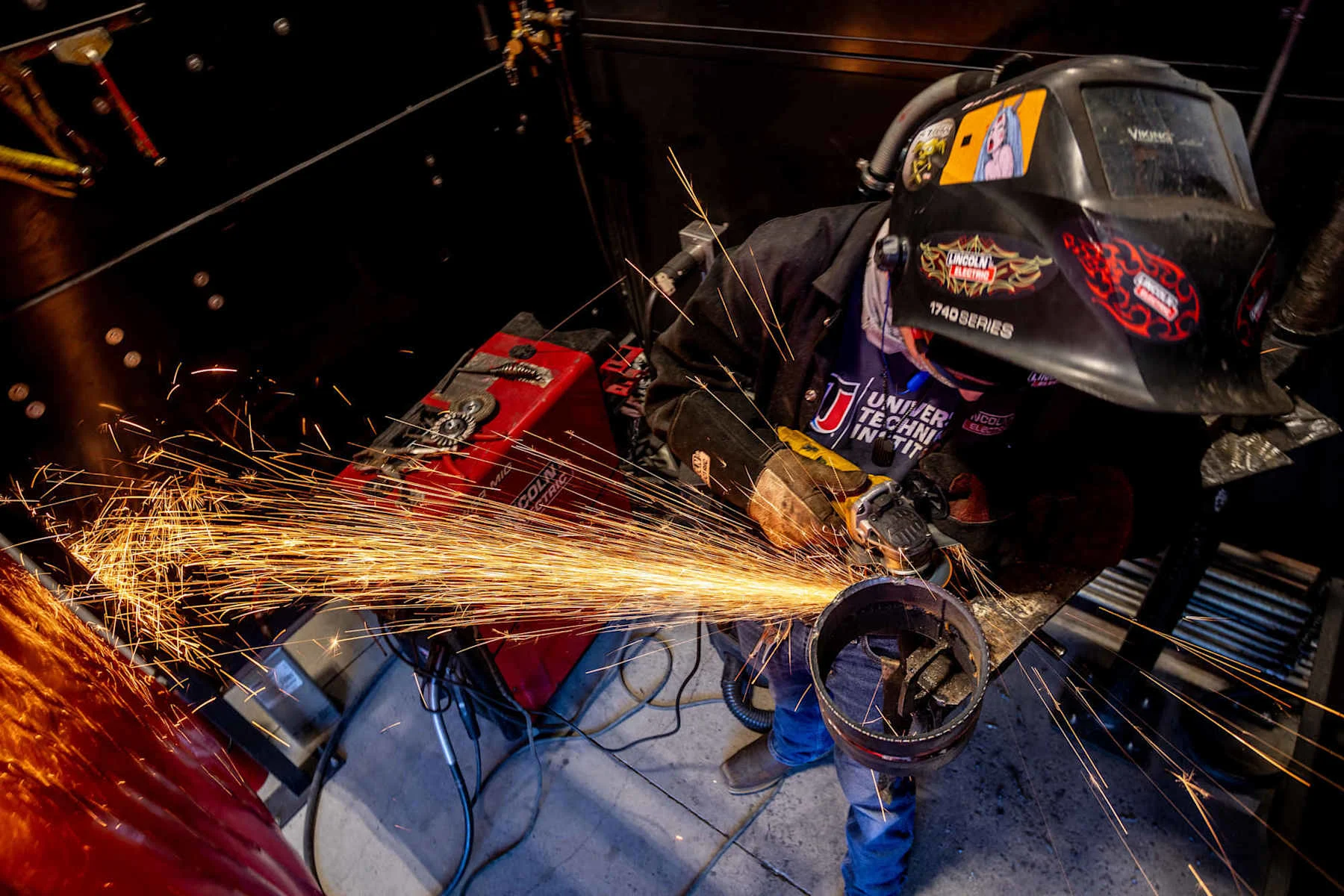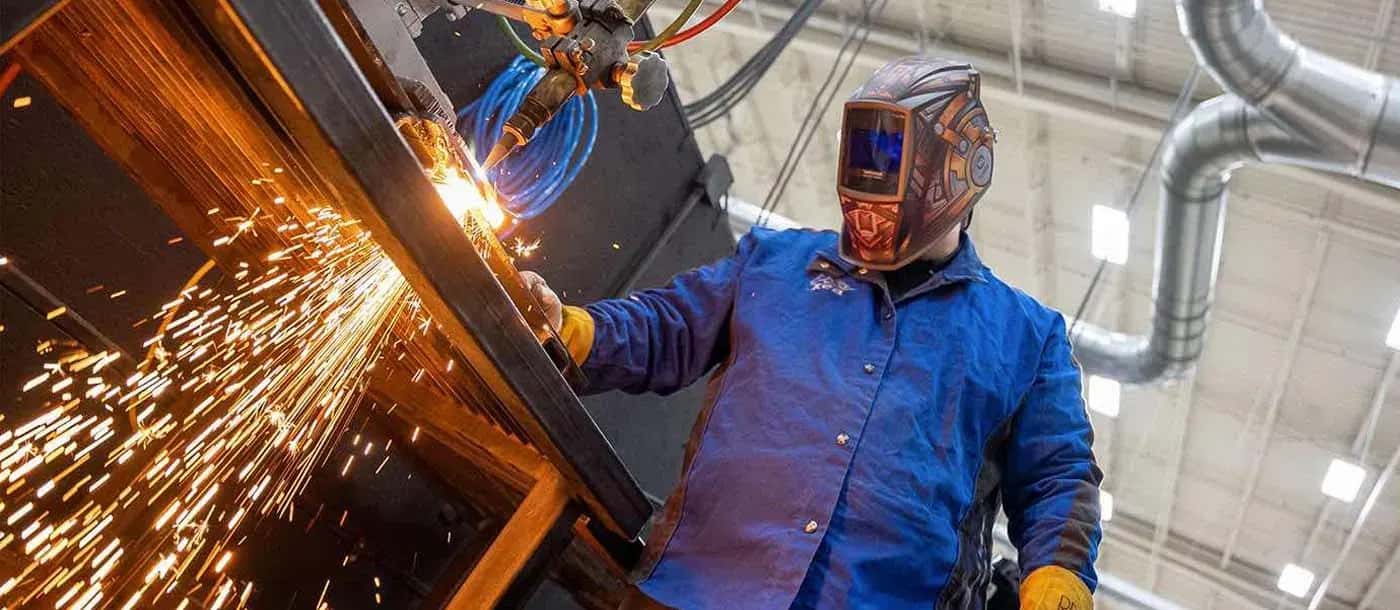Why Choose UTI Canton for Welding Training
For those with a passion for working hands-on, a career as a welder can be a great fit. Welders are often artistic, enjoy the flexibility that the job brings and like solving problems.
Our welding school in Michigan offers training for the industry that covers multiple kinds of arc welds and a curriculum built to get graduates ready for entry-level roles.
Inside the UTI Canton Welding Experience
From construction to manufacturing, welding is a skill that is used in industries across the country. Welders have the job of fabricating and assembling metal parts, repairing materials, inspecting for quality control and more.
Our 10-month Welding Specialist program equips graduates with the knowledge they need to pursue a career in the field.1
Why get welding training with us?
- Relationships with employers
- Complete the program in less than a year
- No prior experience needed
- Hands-on learning that mirrors real-world experience

Welding Courses Offered at Canton
Thanks to our hands-on labs and a curriculum that’s built with help from industry leaders, welding training at UTI Canton means a curriculum tailored to industry needs. Some of the courses at our welding school in Michigan include:
- Shielded Metal Arc Welding I
- Shielded Metal Arc Welding II, Open Root Welding, and Metal Characteristics
- GMAW/FCAW Welding
- GTAW Carbon Steel Welding
- GTAW Stainless Steel Welding
- GMAW/SMAW/GTAW, Equipment and Filler Metals
Graduate Spotlight: Life After UTI Welding
Welding Career Opportunities In Canton
Because our Canton campus has a focus on GTAW, completing welding training with us can help students feel prepared to pursue entry-level positions, particularly in the contruction and manufacturing industries. Our grads are prepared to pursue entry-level roles. As with any industry, over time, technicians may be able to advance in their careers with experience and hard work.
Some entry-level careers could include:
- Welder.
- Fabrication welder.
- Welder fitter.
- Wirer.
As you gain experience and skill, some more advanced careers in welding might include:77
- Inspector.
- Quality control.
- Certified welding inspector.
- Welding project manager.
Keep in mind that job openings in the Canton area will depend on local demand. Graduates can reach out to our Career Services team for help finding opportunities in their area.
According to the Bureau of Labor Statistics (BLS), the median annual salary in the United States for welders, cutters, solderers and brazers was $51,000 in May 2024.26 This means that half earned more and half earned less. Keep in mind that salary depends on several factors, including experience, employer, demand and cost of living in the area.
Image from UTI's Austin campus.

Visit the UTI Canton Campus
Conveniently located near Detroit, our Canton campus is within driving distance of attractions like the Detroit Institute of Arts, the Henry Ford Museum of American Innovation and the Detroit Zoo.
CAMPUS LOCATION
2955 South Haggerty Road
Canton, Michigan 48188
M-F | 8:00am - 5:00pm | Hours
800-447-1310 | Campus
* If you wish to post a job please click here.
Support Services for UTI Welding Students

HOUSING ASSISTANCE

CAREER SERVICES

FINANCIAL AID
Ready To Begin Welding Training in Canton?
Canton Welding School FAQs
Welding training at UTI Canton is designed to be completed in just 10 months. The program emphasizes hands-on learning to help students build essential welding skills and prepare to pursue entry-level roles in the field.
At UTI’s welding school in Canton, students can gain the skills needed to test for welding certifications after graduation.
Yes. While employment isn’t guaranteed, UTI provides Career Services at its Canton campus to support students with resume writing, job search assistance, interview preparation and a network of employers.
Yes! Touring UTI’s Canton welding school is a great way to see the training labs, meet instructors and see the hands-on environment for yourself. Campus tours are offered throughout the week.
To enroll in welding training at UTI Canton, students need to have a high school diploma or GED certificate. Additional requirements may apply, so it’s a good idea to speak with an Admissions Representative to review next steps and start the enrollment process.

